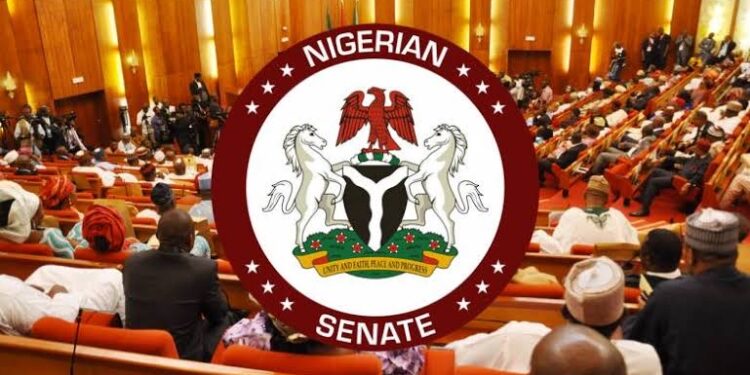The Chairman, Senate Committee on Media and Public Affairs, Senator Yemi Adaramodu, while briefing journalists in Abuja recently, stated that the $800 million facility from the World Bank is not a loan.
He said the amount was different from the N500 billion the federal government had set aside to provide palliatives to Nigerians to cushion the effects of the fuel subsidy removal.
He said: “It is a World Bank facility. It has been on before the advent of this government.
“It is not borrowing; it is for the national social safety net. It is very different from the palliatives targeted specifically at Nigerians which would be sourced among Nigerians. It is not borrowing; it is not a loan.
- Community accuses traditional rulers of land grabbing in Bauchi
- NANS rejects fee hike in higher institutions, threatens protest
“We are not approving a loan for the federal government; it is a World Bank-assisted facility that has been there before the 10th Senate.
“It is just that the National Assembly has to legislate upon any money that is either coming from outside or that is being taken out of Nigeria. That is what we did with the approval given.”
Adaramodu further explained that the N500 billion meant for fuel subsidy palliatives was a different arrangement from the disbursement of $800 million to 12 million vulnerable homes.
He said, “The N500 billion palliatives which the president asked for is to cushion the negative effects of the fuel subsidy removal on the common Nigerians.
“Definitely, that may not be enough because there are many other aspects which the government can delve into, especially as we learnt that the government has been having talks with organised labour.
Verdict: False
Verification
Checks by Daily Trust revealed that contrary to the statement by the Senate’s spokesman, the $800 million secured from the World Bank is actually a loan and not an intervention from the bank.
The federal government had recently secured a $800 million loan from the World Bank to provide palliatives for over 50 million Nigerians after the removal of fuel subsidy.
Recall that the administration of former President Muhammadu Buhari, towards its expiration, secured the loan but could not disburse it as it was already winding down.
Findings by Daily Trust revealed that the concession loan, which was approved by the World Bank board, is to be repaid in 25 years with an interest rate of 2.5 per cent.
The money is set to be shared to vulnerable persons captured in its National Social Safety Net Programme.
Concessional loans, also called soft loans, have more generous terms than market loans.
The features of concession loans generally include below-market interest rates, grace periods in which the loan recipient is not required to make debt payments for several years or a combination of low-interest rates/grace periods.
Also, the $800m loan obtained by the government attracts a maximum commitment charge rate of one-half of one percent per annum on the Unwithdrawn Financing Balance, and a service charge of three-fourths of one per cent per annum on the withdrawn credit balance, according to the document.
The interest charge is one and a quarter percent per annum on the withdrawn credit balance.
Also, a percentage of the principal amount of the loan is expected alongside the other charges, and this will increase over time.
While the first payment will be 1.65 per cent of the principal amount, the last payment will be 3.40 per cent of the principal amount.
Also, the agreement between the federal government and the World Bank which was signed by the former minister of finance, Zainab Ahmed, has a repayment plan which will be made from 2027 to 2051, twice a year.
Similarly, the Country Director of the World Bank, Shubham Chaudhury, recently also confirmed that the financing that the World Bank has provided to Nigeria is a loan.
He explained that the loan is a highly concessional one that will be paid back over some years.
Chaudhury stated that although the $800 million is a loan, it almost looks like a grant because the interest rate Nigeria will pay for the loan is about 2 percent yearly.
Conclusion
Findings by Daily Trust showed that the $800 million secured by the government of former President Buhari is a loan and not a grant. This is contrary to the statement by the spokesman of the Nigerian Senate, as such, the claim is false.
This Fact Check is produced in partnership with the Centre for Democracy and Development (CDD)

 Join Daily Trust WhatsApp Community For Quick Access To News and Happenings Around You.
Join Daily Trust WhatsApp Community For Quick Access To News and Happenings Around You.
